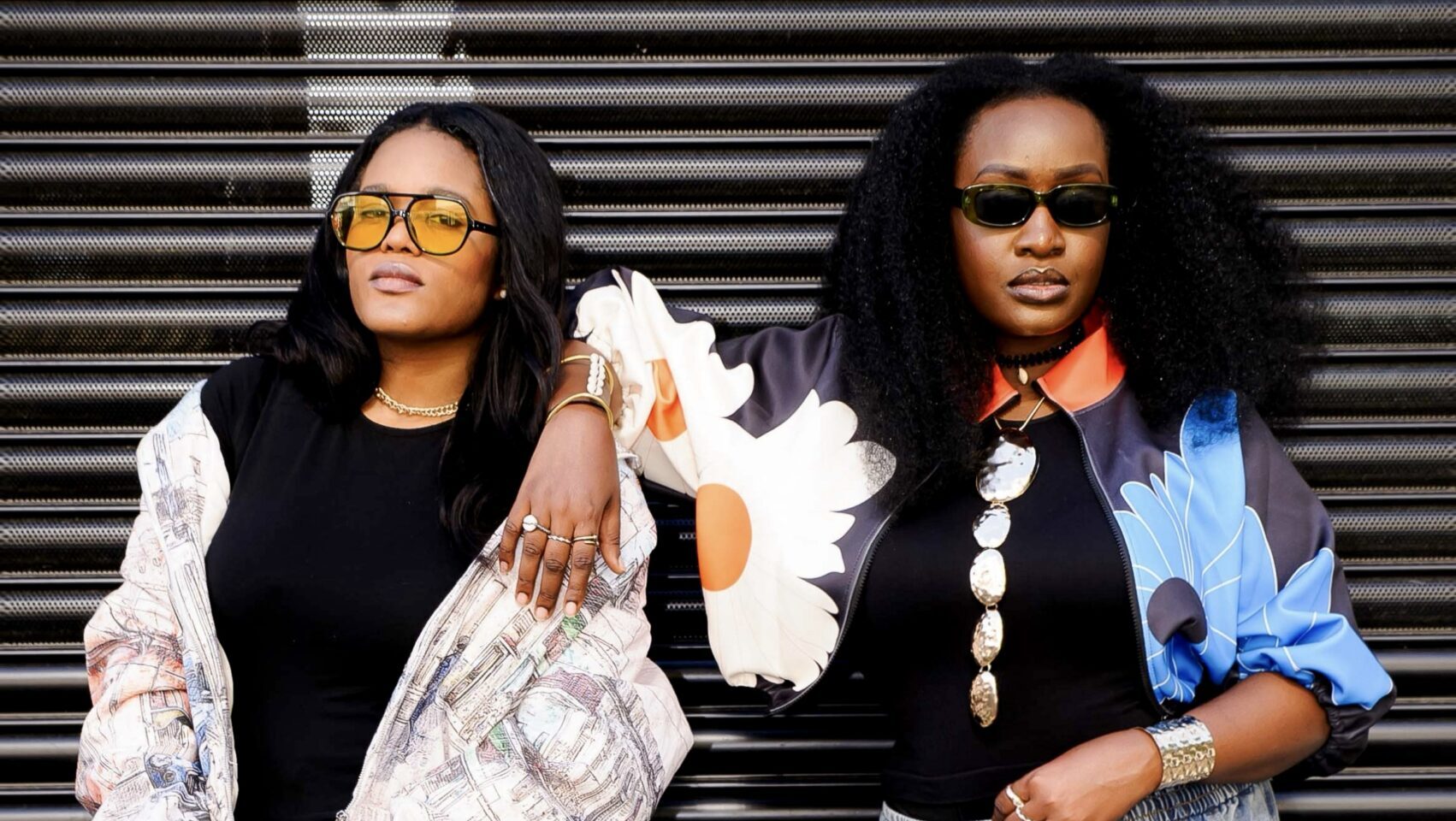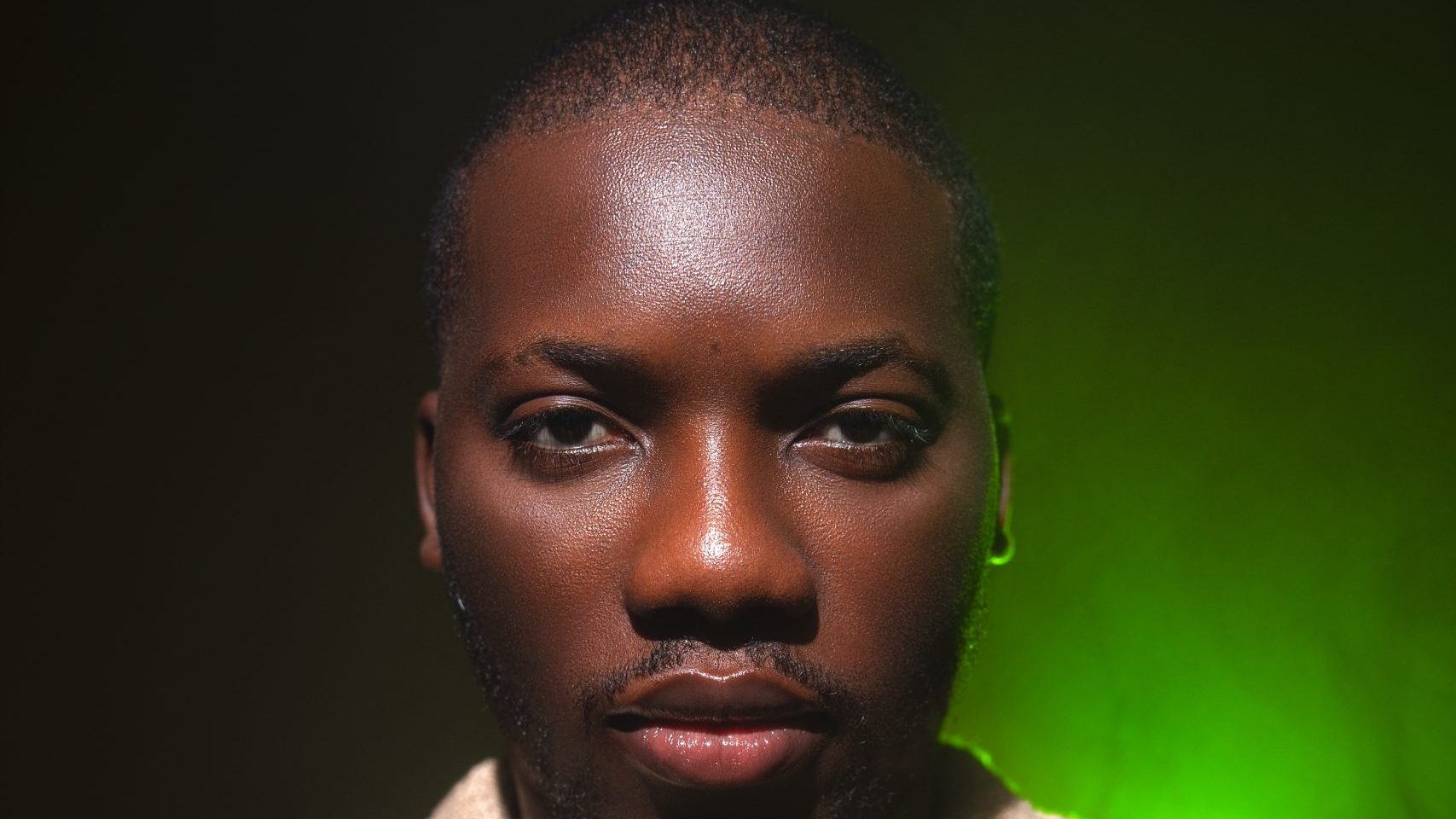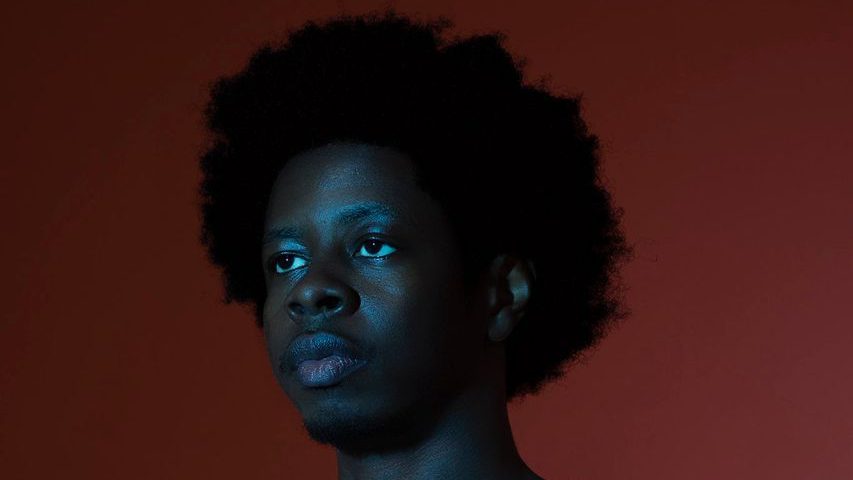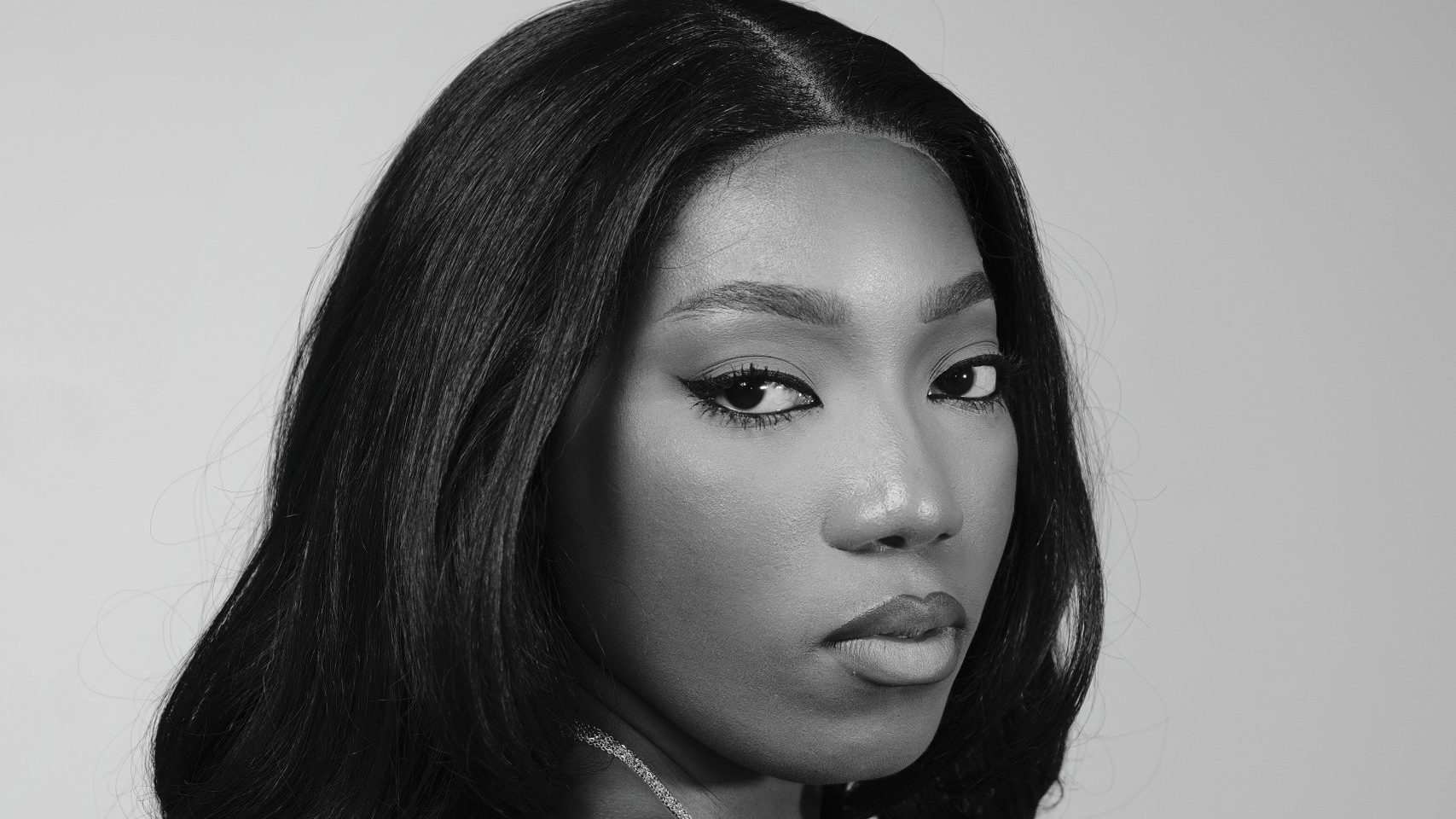In the current Nigerian music landscape, which is so dominated by Afrobeats’ commercial machinery, two artists have spent the last ten years carving out space for something different. Maka (a former lawyer turned genre-bending singer who leads the band One Band Like That) and Phlow (the first Nigerian female MC featured in The Source magazine and a computer science graduate who raps with the precision of her day job in tech) represent a commitment to authentic artistry in an industry that frequently demands conformity.
Their partnership, forged through producer Teck-Zilla’s studio and sustained across the evolution of time, geography and creativity, embodies the tension at the heart of contemporary Nigerian music: the desire to be heard versus the pressure to sound a certain way. While their peers chase viral moments and stadium-sized crowds, Phlow and Maka have built their careers in the intimate venues of Lagos, including Freedom Park, the New Afrika Shrine, and Bogobiri, where audiences come for music that doesn’t apologise for its niche appeal. This conversation, conducted as they prepare to release their latest collaborative project (psst! here’s the new single!), reveals two artists deeply aware of their position: too alternative for mainstream Nigerian radio, too Nigerian for easy international categorisation, yet too talented and resilient to quit. They speak with the ease of long friendship and the clarity of artists who are comfortable in their creation.
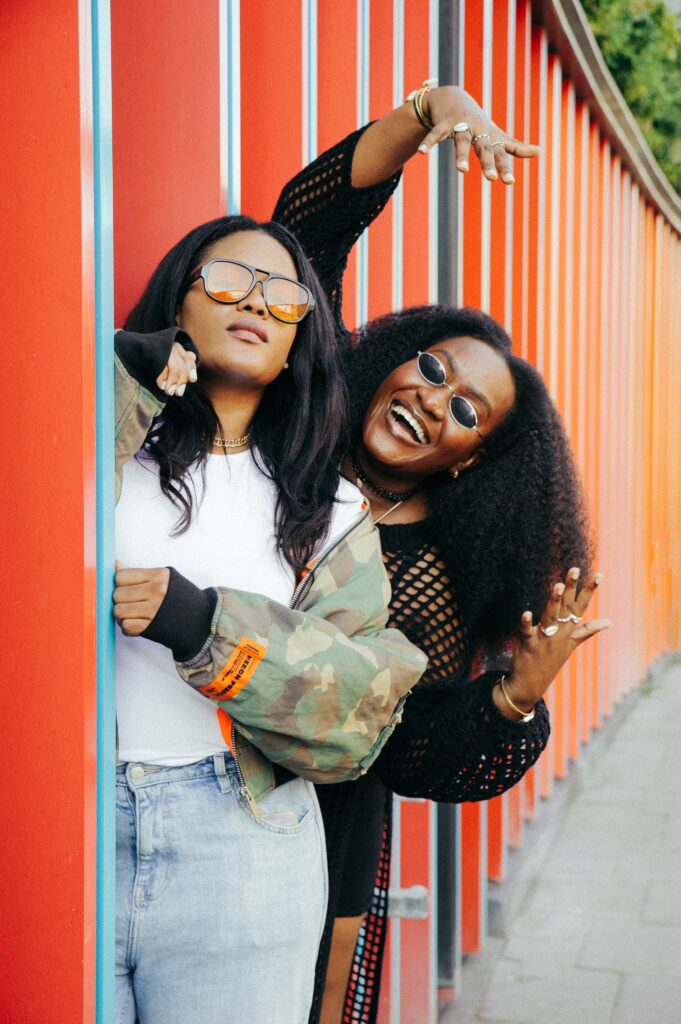
You’ve collaborated multiple times in the past, and you have another new joint project in the works. So how did your creative partnership begin, and what makes your collaboration work so well?
Phlow: I think we owe this connection all to Teck-Zilla, our producer. He’s the main link. I met Teck separately, and then he introduced me to Maka. At that point, I was working on my first project ever, and Maka was gracious enough to jump on a couple of the songs there, and it was smooth as hell. Like it was super easy. She’s highkey made for hip-hop hooks. I don’t know if she knows that, but trust me, I do.
Maka: When I first started singing, I actually wanted to be known as the go-to girl for hooks for rappers. And I thought that was all I was going to do. Be the Erykah Badu of the hip-hop industry in Nigeria. Just dish out hooks. I thought I was going to do before I realised that I could actually make my own music and not just be featured on people’s songs. Around that same time, I was working on my first project, and as luck would have it, Teck-Zilla was producing for both of us. So he was like, he’s got this dope rapper that he’s working with right now, and he thought it was going to be a great idea to work with her. As soon as we linked up, it was… You know what? Screw it. I’m going to say it. It was love at first sight.
Phlow: Yes! I think that’s why it works to be fair. Super easy collaborations, same wavelengths, Teck-Zilla. I think those are the ingredients.
Maka: You know what? It’s the Powerpuff Girls.
Phlow: Honestly. Like it is. Yeah. Teck-Zilla would be the professor, and I would be Buttercup.
Maka: I was going to say Buttercup. I am NOT Bubbles. I’d say I’m a good mix of Blossom and Bubbles.
You guys are so cute! You two come from different primary genres. Maka has her finger in many different pies, blending so many sounds with jazz, and Phlow has a concrete hip-hop foundation. So, how do you guys find common ground musically?
Maka: The common ground is that we just be ourselves. We don’t try to force it. Yeah. Phlow has a way of rapping, and I have my way of singing. So, regardless of the instrumental, we just ride the wave and we are ourselves.
Phlow: Yeah, definitely. I think we are both lovers of really good music, and if the music is good, I’m there to be fair. And I’m a huge fan of jazz. Jazz and hip-hop have always sort of been linked. So, it’s super easy. It’s good music. And if we come across an instrumental that we can’t find a common ground on, we just ditch it. We move on. It’s not that serious. We move on and we find something that we like. It’s not that serious.
What’s your creative process when you are both working together?
Phlow: Well, it depends. There have been situations where Maka has heard something, she’s already working on it, and then I get in. I’m like, “Ooh, I definitely feel I could jump on this.” And I’m there. And there are times when—I think this is my favourite sort of way of working—is when we both hear a beat and we’re like “okay, let’s do something!”. I think. on the project which is coming out pretty soon, one of my favourite joints there is where we both wrote on the spot, and there’s like a sort of give and take.
Maka: Yeah, exactly as Phlow said, sometimes I hear the instrumental and it tells me what it wants me to write, and then I just go with that vibe. Phlow hears what I’ve recorded, and immediately, she jumps on it. Sometimes, Phlow would have a verse, and then I come up with the hook, or I come up with my verse, which then leads to the hook. So there are no rules to this. It’s just whatever feels right in the moment. Sometimes we’re not even in the same session…
Phlow: Or the same country.
Maka: Yeah. True.
So, Phlow, you were the first Nigerian female emcee featured in The Source Magazine, and you have also been selected as one of the top six female emcees in Africa by MTV Base. So, how did these milestones feel and do you feel a certain responsibility towards representing Nigerian hip-hop on a global scale?
Phlow: Oh, that’s a heavy question. Those milestones were amazing. I think what happened with The Source happened really early on in my career, and it was such a huge deal for me, because there’s no hip-hop head that didn’t grow up knowing The Source. I felt like I was doing the right thing, and all the years of writing alone in my room and recording verses in my closet finally made sense. My mom finally sort of understood what I was trying to do, so that was huge for me. And yeah, I do feel some kind of responsibility. I can’t help it. I think the more time I’ve spent trying to hone in on who I am as a person, the more important it has been for me to make it clear that this is where I’m from. Even though you think I might sound a certain way, this is what made me, and these are my foundations. So, yeah, for sure, I do feel some kind of responsibility.
And for Maka, you have a law degree and a master’s in digital marketing, but you chose music as your full-time career. So, was there a specific pivotal moment that made you decide to fully commit to music?
Maka: I think when I realised it was something I really wanted to do, I tried for the longest time to combine practising law and being a singer, but it just wasn’t working. My boss at the time kind of suspected there was something different about me; I think he heard me singing in the break room once. I told him, “Oh yes, I perform on weekends with my friends at Freedom Park.” This was around 2014 or 2015. He said, “Really? Let me know when you perform next, I’ll come with my friends.” He came through with his lawyer friends, and when I saw him at work on Monday, he said, “Wow, that was an amazing show. You were so different on stage from the person I see at work. Why didn’t you tell me you’ve been doing this?” He actually encouraged me to pursue it. Looking back, I sometimes wonder if he thought I was a shitty lawyer, and that’s why he pushed me toward music. But he told me, “You’re young, you’re very good at singing, and you have great stage presence. I think you should pursue this and see where it takes you. I wouldn’t be a good mentor if I asked you to just stick around.”
I don’t know if I was that bad at my job, but I took his advice. And yeah, it’s been music since then. We still keep in touch on Facebook.
You both have international recognition, but your roots are still clearly Nigerian. How do you see the current state of Nigerian music’s global influence?
Phlow: It’s very clear that the whole world is listening to us right now. And it didn’t even just start today. I think for the past decade, we’ve been in the spotlight, but definitely with the rise of social media, it keeps getting more impactful. It seems like there’s something special about right now, but I would say that the world has been listening to Afrobeats for a long time. It didn’t just start today.
Maka: Yeah, definitely. I think their ears have sort of always been tuned, but it’s clearer now because of social media, and it’s a pretty good feeling, you know, that validation that yeah, Nigerians are that guy. Yeah, it’s good to be heard. It’s a pretty good feeling. I feel proud to be honest. You hear your influences in everything now. I heard a Ciara song very recently, and even the one Beyoncé did with Shaboozey, you know, Chris Brown, Drake, they’ve been doing songs like that for a while.
Phlow: Yeah. It’s like a rite of passage now. Like, if you’re black, American, and a pop star, you just have to dip your toes in Afrobeats at some point.
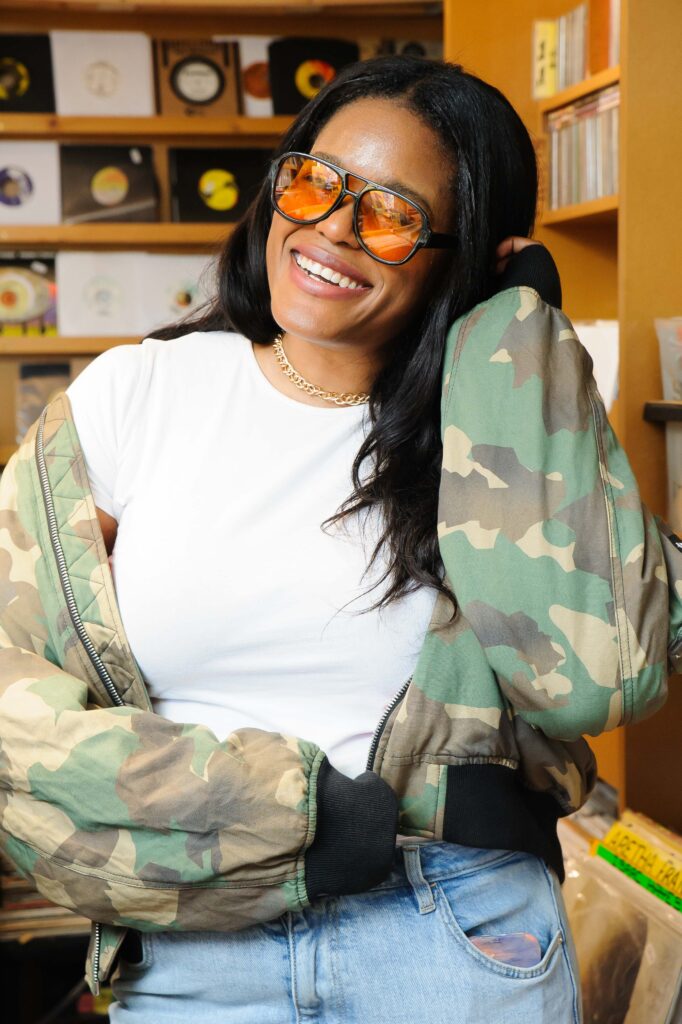
As artists who have lived and worked in both Nigeria and abroad, what unique perspective do you think you bring to the music that you create?
Phlow: For me, exposure has always been very important. It’s sort of just like an add-on, I think. Not being home all the time has its downsides, but its perk is that you get to see things from a different perspective, right? So for someone like me who bases most of my lyrics and my music on personal experience and things that I’m seeing, it’s great. Awesome material. It influences my sound slightly. I’d like to think it’s beginning to influence my sound. And it’s a win-win. It’s a plus for me from my perspective.
Maka: I just love being able to experience new things. Just like Phlow said, the exposure is key, and all the people I’ve met along the way definitely help towards the creativity. Yeah, and the business side of things as well. The business side of things here, you know, the way things are done compared to the way things are done back home. We’re living both sides, so we can compare.
Since we are talking business now, I’d just like to use that to ask you, Maka, about your jewellery line. How did that come about, and where are you going with it?
Maka: I’ve always loved arts and crafts. I’m my mother’s daughter. My mom has always been good with her hands. She taught me how to bake, how to sew, how to make jewellery, etc. I’m one of those people who can’t wear certain materials of jewellery, so I had to start looking for different materials to turn into jewellery. It went from cutting my trousers and turning them into chokers and sewing buttons on them as pendants, to looking for beads, and then it graduated to shells. I would literally just turn everything around me into a choker or a necklace because I could only wear original gold or silver, as if I had enough money for that lifestyle. If I wore costume jewellery, my skin would peel. So, I was creating just for myself, and they started drawing attention. People started asking me if I sold them, and I was like, you know what? Let’s ride the wave. And it took off! It was easier back in Lagos because I had all my shows, and I would have my merch sold there. People would buy rings, people would buy necklaces, bracelets, anklets, and stuff. But since I moved here, let’s just say it’s on pause for now, till I figure out how to get back up again.
Phlow, we’ve kind of touched on what it is like being a female MC, but what was it like establishing yourself in such a male-dominated scene like hip-hop?
Phlow: I think the two main things I’m into are male-dominated. I say two because I’ve got a 9-to-5. Computer science at the university was mostly guys, with just a few girls. I grew up with two brothers, same as Maka, so it was something I was used to. At some point, I was even more comfortable in male-dominated spaces than anywhere else. I remember recording for a Terry Da Rapman contest around 2012/2013. It was one tiny room with about 25 guys and just one me. I think I even did a verse that won. But I didn’t feel out of place; it was just another day. In the beginning, I didn’t really notice any friction. Optimism was key, and it was all super easy.
Now that I’m older, I notice the hardship of being female in music, especially in rap. I see it even from peers we all know and love in the industry, little comments like, “Oh yeah, because you’re a girl, right?” And I’m like, really, bro?
But it’s something that comes with gender, whether in tech or music. You work with what you’ve got. For me, it’s always been about owning what you have and moving how you need to, to get where you want to go.
Phlow, your sound has evolved from pure spitting to incorporating more melody and singing, especially on projects like Gloria. So, what inspired the shift?
Phlow: I’m going to start with the name ‘Phlow’. It stems from me picking the two aspects I liked in rap, which were the flow and poetry, the lyricism. I’ve always been a fan of melodies, and I just sort of feel like I can’t sing, first of all. So, when I was first getting into rap, I’m like, “Yeah, just don’t sing, okay? Don’t do anything. Don’t try to be Flo Rida, okay? Just do the one two threes and the four five sixes.” And I think meeting Teck-Zilla, who is at his core as hip-hop as they get, especially when it comes to his instrumentals… My first thought was, “Okay, yeah, I’ve got to be hard, man. I’m just going to do the thing.” I didn’t want to be melodious, even though deep within me, that’s what I wanted to do. So I’d say it was always there, but I just got brave and was like, “You know what? I can pull this off. Let’s go. It’s fine. We’ll do it.”
Maka: Actually, Phlow can sing. You don’t have to run notes to be able to sing. Just don’t make our ears cringe. That’s all.
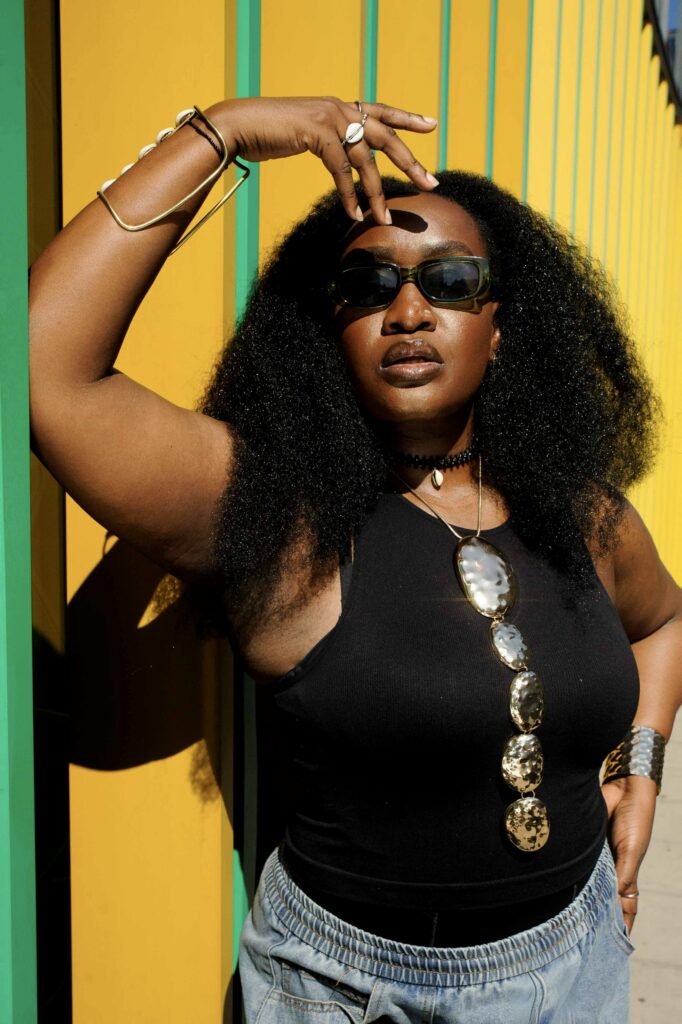
Maka, you’re known as the ‘Queen of the Stage’, and you also founded One Band Like That, which I have to say is the best band name I’ve ever heard. What makes live performance so central to your artistry, and how do you create that powerful stage presence?
Maka: Okay. I’m going to sound very cliché because, to be honest, I’m not as outspoken and extroverted as people might think I am. I’m a little bit quiet. I also have a speech impediment; I have a stutter. But once I get on stage, I am a different person. It just comes from nowhere. I am so confident, I am so sure, I am so funny. I just feel it on stage every time. And I guess performing has always been an outlet for me. I joined the choir when I was 6 years old, and as young as six, seven, they put a mic in my hand as the leader. So, I’ll be that little girl singing with teenagers, and yet I’m the one singing the solo. So, it’s always been there, and I just went with it.
You are also a solo artist. So, how do you balance that with leading a band?
Maka: Okay. Well, being an artist and being a live performer, to me, they are one and the same because it’s not like, oh, it’s an artist band where we make our own music. No, the band is still with Maka because we perform my songs. It’s just the live versions of those songs. So, it’s not difficult at all. I’m not separating anything. They are the same. Like the song Phlow and I just released. I already sent it to the group chat. We’re already working on the live version of it. And Phlow, she’s going to come through one of these days to rehearse with us so we can perform it live as well. So, this is something I do. They are the same.
Phlow, you’ve judged the Hennessy VS Class Artistry competition with other artists like Vector and Phyno. So, what’s it like transitioning from being a contestant to being a judge? And what do you look for in emerging artists?
Phlow: It was really surreal being on the other side of things. Thankfully, it had been a few years after I won. And I got an awesome chance to do it twice, which was really amazing. And overwhelming because I remember there being so many people. So, in one word, surreal being on the other side. I’m human. So, a little bit of imposter syndrome is bound to pop up, but it was a really good experience. And I think what I look for in an emerging artist: passion is important, but skill as well. So if I’m listening to a rapper, I’m looking for originality. I think anyone can recite a verse, especially these days when you can just get AI to write your verse for you. It’s not that deep, but how do you deliver the verse? Is there soul behind what you’re trying to do? Can I actually hear what you’re saying? Are your Rs a little too many? Are they popping up? Do you sound like yourself? I think that’s key. So, it’s originality and passion to be honest. Those are the two things that I try to look for and soul when I’m listening to an emerging artist, when I’m trying to find a good one.

What changes would you both say you would like to see in the Nigerian music industry for female artists and for the industry as a whole?
Phlow: The change that I would love to see is more diversity when it comes to the genre, the music that Nigerians love to listen to in the industry. It’s like, if it’s not Afrobeats, they’re not listening to you. So, I would love a little bit of that expansion because I know how niche people like me are. And it’s not that we don’t want people to listen to us. We do. We want the crowd. We want everyone to listen to soul. We want everyone listening to hip hop. We want everyone to love jazz. But we have to deal with the cards that we’re dealt. That’s it. I would appreciate it if Nigerians can just expand their horizon when it comes to genres.
Maka: I think my answer is going to be along the same lines, and it’s acceptance. That’s what I would like to see change. If I could change anything, be more open to new sounds. I know there are people out there who want to hear something different. Come out for me. But will I fill up the big halls? Will I fill up Federal Palace Hotel or Eko Hotel? I don’t know. So we just used to go for smaller venues like Freedom Park or do our shows at Shrine, where we know that yes, these people, they love what we’re doing. We would go to Bogobiri. I heard that Bogobiri burned down.
Phlow: Oh yeah.
Maka: So that’s very sad. But Bogobiri was a home to us. Yeah. It’s sad what happened to it. But yeah, I’m not saying that those people don’t exist, but I remember so many times I had friends who would tell me out of the goodness of their hearts—you can’t see me now, but I’m doing air quotes—”goodness of their hearts.” Like, “Ah, don’t you want to try more of like dance? Like, don’t you want to make people dance?” It’s like, bro, I’m doing what is in my heart, okay?
Phlow: I’m just doing what’s in my heart! I’ve definitely gotten the same advice. “Why are you sounding like this? Don’t you want to do this? Sound a certain way. Sell more. Look a certain way.” And if it’s not you and you’re forcing it, it just turns out cringe to be honest. Everyone can tell.
Maka: So the thing is, Nigerians still listen to R&B. They’re still the same guys who would listen to an Usher song, a Chris Brown song, and all those other songs that are reigning on TikTok, but just not when it comes from fellow Nigerian artists. We’re making what we’re supposed to be making, what we want to make.
Phlow: Yeah. Yeah. And it will definitely find its audience.
Maka: Yeah. Otherwise, we would have quit a long time ago. But the fact that we’re still here means that we’re doing something right.
And where do you see yourselves and your collaborative work in the next 2 years?
Phlow: I’m beyond optimistic about our project. There’s literally nothing at all like it. Like at all. So, I’m super optimistic to see how it’s received, especially not only within Nigeria but here as well, where we are. I’m psyched about performing our songs live. I’m going to 100% lean on Maka for those performances and stage presence. But yo, I’m super stoked with the next two years. I think we’re definitely still going to be together.
Maka: Oh yeah. More people are going to know the name. We’ve been doing this for a decade now. What is two more years? Five more years? Yeah. Yeah. We’re going to be there for all the different stages of our lives. I’m going to be auntie to Phlow’s kids. She’s going to be auntie to my kids. We’re going to teach them how to sing and rap as well. We’re going to be in each other’s lives forever doing music and being friends. That’s just it. Making more collaborative projects together. That’s it.
Once again, your friendship is so cute. Finally, what do you guys hope that listeners take away both from your individual bodies of work and your collaborations together?
Maka: “Shit, they make good music!” That sums it up. And we just want them to know that whatever they think they’re going through, whatever they’re going through, there’s a musical version of it that Phlow and I wrote for you and will play for you and explain your feelings for you, and then you’ll be like, “Oh shit, that’s exactly what I’ve been feeling.” Yeah, this is it. This is it.
